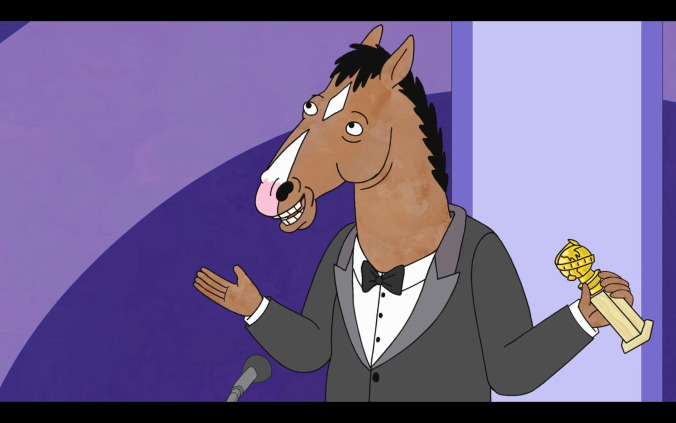
For anyone that hasn’t watched Bojack Horseman, a cartoon about an anthropomorphic middle-aged horse and former sitcom star, it’s difficult to imagine it could be a show capable of reshaping the way we think about happiness, success, and, ultimately, the meaning of life. But for those well acquainted with the show, that’s undoubtedly the case. Through the various characters’ self-destructive behaviors and failed attempts to better themselves, Bojack Horseman provides an unflinching look at the human experience that’s surprisingly realistic, especially considering not many of the characters are human. In his most recent video, YouTuber Will Schoder takes a look at how Bojack Horseman subverts the traditional narratives of TV and movies to give us that realistic version of life, which often lacks the happy ending we crave.
“The idea that life doesn’t have happy endings but is rather a series of positive and negative moments in time is the foundation of the entire show,” notes Schoder who goes on to compare Bojack to the traditional sitcoms it often satirically portrays. In shows like Seinfeld, The Simpsons, or Friends, closure and happy endings are an essential part of the format. Sitcom characters need to have a tidy arc that not only fits within a half hour but resets to their original position so they’re ready to do it all again next week. Bojack is serialized, which allows the characters’ problems to remain unresolved, lingering in the background, just like in real life. Even if Bojack or Todd or Diane experience a moment of joy, it’s still represented as only a moment. The next day still happens and it’s always the start of a downhill slope.
The central tension in Bojack Horseman, as Schoder points out, is that the titular character continuously struggles to accept this unsatisfying version of reality. Bojack wants life to be like the TV show he starred in or the movies he’s watched since childhood. He wants his happy ending and he thinks that, when he eventually gets it, he’ll be happy too. What’s even more troubling is that we, as viewers, often fall into this same trap.
“Like Bojack, we escape into narrative constantly. We’re a mass media saturated audience that all to often replaces pop culture with the harder tasks of intimacy, self reflection, and building meaningful friendships,” says Schoder. But, despite the absence of reliable narrative structure and predictable happy endings, there is some hope in Bojack Horseman. The show inspires viewers to live life day to day, remembering that happiness is not a goal, but is instead a process. As the jogging baboon from season 2 said, “You gotta do it everyday. That’s the hard part. But it does get easier.”